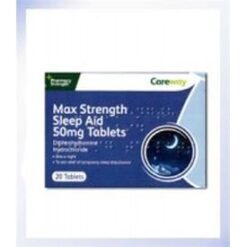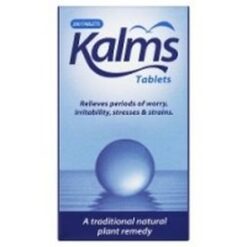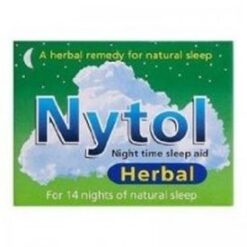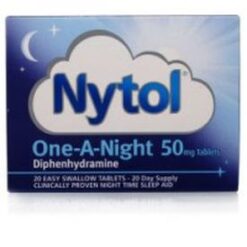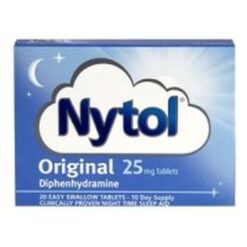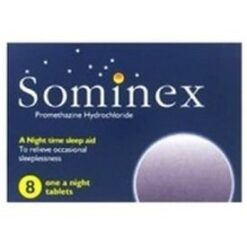What is Insomnia?
Insomnia is a sleep disorder that makes it hard to fall asleep or get quality rest, even when you have the chance to sleep. It can leave you feeling tired and cranky during the day, making it tough to focus or enjoy daily life. Insomnia can be short-term, lasting just a few days or weeks, or chronic, lasting three months or longer. Sometimes, it happens on its own, while other times, it’s linked to other health issues or lifestyle changes.
Are there different types of insomnia?
There are a few key types of insomnia that can affect people differently:
- Acute Insomnia is a short-term sleeplessness that typically happens because of things going on in your life. Maybe you’re stressed about a big work presentation, dealing with a personal challenge, or experiencing a major life change. It usually resolves itself once the triggering situation passes.
- Chronic Insomnia is the long-lasting version, where sleep problems occur at least three nights a week for three months or more. It can be primary (happening independently) or secondary (caused by another health condition like sleep apnea).
- Onset Insomnia is when you struggle to fall asleep when you first go to bed. Your mind might be racing, or you just can’t seem to drift off, no matter how tired you feel.
- Maintenance Insomnia is when you can fall asleep initially but wake up during the night and can’t get back to sleep. You might find yourself staring at the clock, feeling frustrated and exhausted.
What are the symptoms of insomnia?
Insomnia isn’t just about not sleeping – it affects your entire day. Here are the key symptoms to watch out for:
- Difficulty Falling Asleep: You might lie in bed for hours, tossing and turning, unable to switch off your brain. The clock ticks by, and sleep feels impossible.
- Waking Up During the Night: You find yourself constantly waking up, checking the time, and struggling to fall back asleep. Each interruption makes you more frustrated.
- Waking Up Too Early: Your body decides 4 or 5 am is a great time to be awake, even though you’re exhausted and want more rest.
- Daytime Consequences:
- Feeling tired and sluggish
- Difficulty concentrating
- Mood changes – feeling irritable or anxious
- Reduced performance at work or school
- Headaches
- Digestive problems
- Physical Signs:
- Dark circles under your eyes
- Feeling constantly worn out
- Lack of motivation
- Increased errors or accidents
How to Treat Insomnia
Cognitive Behavioural Therapy
Cognitive Behavioral Therapy for Insomnia (CBT-I) is considered the first-line treatment for chronic insomnia. It helps you identify and change thoughts and behaviours that affect your sleep. CBT-I may include:
- Stimulus control therapy: Training your mind and body to associate bed with sleep.
- Relaxation techniques: Trying to relax using progressive muscle relaxation and breathing exercises.
- Sleep restriction: This involves limiting the time you spend in bed to improve sleep quality.
Sleep Hygiene
Practising good sleep habits can significantly improve sleep quality. This includes:
- Maintaining a consistent sleep pattern and schedule
- Creating a relaxing bedtime routine
- Making sure you have the optimum sleeping environment, i.e. keeping your bedroom dark, quiet, and cool
- Keeping a sleep diary to keep track of your symptoms
Medications
If you’re dealing with short-term insomnia, over-the-counter sleeping tablets can offer quick relief. These medications are designed to help you doze off faster and improve your overall sleep quality.
| Tablets | Ingredients | Key Features | Prescription Needed | Additional Notes |
| Careway Sleep Aid 50mg Tablets | Diphenhydramine hydrochloride | – Helps induce drowsiness
– Suitable for short-term sleep problems |
No | Typically recommended for adults and the elderly |
| Kalms Tablets | Herbal ingredients (e.g., valerian) | – Helps reduce anxiety and stress
– Natural approach to mild sleep disturbances |
No | Best for mild sleep issues |
| Nytol Herbal Tablets | Valerian root extract | – 100% natural formulation
– Helps promote relaxation |
No | Can improve sleep quality without drowsiness |
| Nytol One-a-Night | Diphenhydramine | – Fast-acting sleep aid
– Designed for quick onset of sleep |
No | Single dose formula |
| Nytol Original | Antihistamine (diphenhydramine) | – Helps you fall asleep faster
– Reduces nighttime awakenings |
No | Traditional sleep medication |
| Sominex Herbal Tablets | Herbal composition | – Supports relaxation
– Gentle approach to sleep issues |
No | Can help reduce mild anxiety |
| Sominex Tablets | Promethazine hydrochloride | – Effective for short-term insomnia
– Helps regulate sleep patterns |
No | Not recommended for long-term use |


